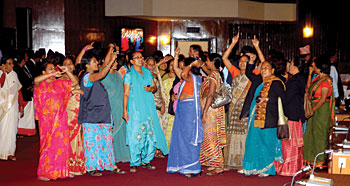 NHUCHHE MAN DANGOL |
On 28 May, with negotiations for the extension of the CA stuck, women MPs approached the speaker's rostrum and started shouting slogans demanding an end to the political deadlock.
That image, beamed nationwide, showed that there was solidarity across party lines among the women members of the House. We don't know if the slogans had any bearing on the one-year extension. Probably not much. But two months later, the CA is deadlocked again, this time over the election of the prime minister.
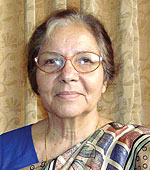 PICS: RUBEENA MAHATO "Until women reach decision-making levels, they will not have any significant role in ending the current political stalemate." - Suprabha Ghimire, NC |
"Why don't the leaders understand that the most important thing now is writing the constitution?" asks UML MP Shanti Pakhrin. "Anyone should be allowed to lead the government as long as the constitution is drafted in time."
Just as the men MPs did not join the women when they were sloganeering on 28 May, it seems to be mostly the women representatives who are outraged by the power struggle that has stalemated parliament's election of a new prime minister.
The majority system has failed to elect a prime minister twice and if the third round of elections on 2 August also breaks down, there is the danger of prolonged political paralysis. There seems little hope of a consensus government either.
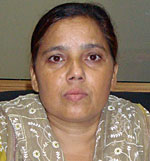 "There are leaders who haven't still changed their mindset. Some of them don't want the constitution to be written." - Dama Sharma, UCPNM |
Many women CA members are war widows, but do not let personal tragedies cloud their judgement. Pakhrin's husband Buddhiman Tamang, a Dolakha UML leader, was brutally murdered by the Maoists in 2002.
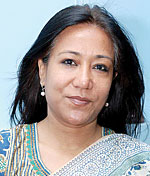 "If lawmakers are able to vote according to their conscience, the numbers game will not be so important and we can untie the political knots." - Sapana Pradhan Malla, UML |
Constitutional issues are not restricted by the party whip, and many CA members have risen above the party line. UML MPs, for instance, ignored the party directive about governance in the new constitution. The UML's Shanti Devi Chamar registered a note of dissent against her own party on special rights for Dalits.
CA members have not just been lounging in the sun all these months, as the media has reported. The CA's 11 committees submitted reports for review but male party leaders are divided over some provisions, which has delayed the constitution-writing process.
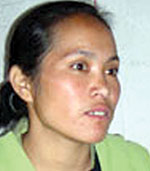 DAMBAR K SHRESTHA "I often see people who ordered the execution of my husband, but I am working with them because I want peace in the country and a new constitution written." - Shanti Pakhrin, UML |
Ushakala Rai agrees: "The country is ruled by a few male Bahuns who are reluctant to share power. It is their greed that has held the country hostage. They cannot rescue the country from the stalemate."
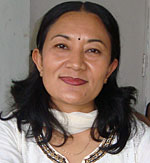 "The country is ruled by a few male Bahuns reluctant to share power. It is their greed that has held the country hostage. They cannot rescue the country from the stalemate." - Ushakala Rai, UML |
Despite there being 197 women MPs out of 601 in the CA, the assembly reflects the entrenched patriarchy of Nepali society. There are no women in any of the negotiation teams or on the conflict resolution committees. "Until women reach decision-making levels they will not have any significant role in ending the current political stalemate," says NC lawmaker Suprabha Ghimire.
The UML's Sapana Pradhan Malla says Nepali politics and the legal system have never been gender-sensitive, and that is part of the reason why they fail. Malla and others say the constitution can be finished in time if they are unhindered by male power-centric politics. "If the whip is removed in parliamentary matters and lawmakers are able to vote according to their conscience, the numbers game will not be so important and we can untie the political knots," she suggests.
Everyone is convinced consensus politics is the way ahead, but wonders why it has not been possible. "Why not," asks Pakhrin. "I left my grief behind when my husband was killed to work with the Maoists. Why can't the parties do the same?"
READ ALSO:
It's getting stale, mate, PRASHANT JHA
In a state of deprivation, PUBLISHER'S NOTE
An open letter to the Big Guys, SUNIL B PANT


